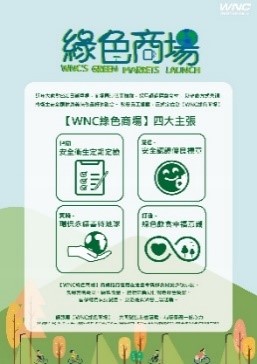Local farmers in the mountainous regions of Miaoli produce agricultural products using non-toxic, pesticide-free, and eco-friendly methods that are friendly to the Formosan leopard cat. They aim to integrate the concept of leopard cat conservation into the community, revitalizing it while supporting environmentally friendly farming practices and the livelihoods of farmers. Moreover, their efforts in leopard cat conservation contribute to enhancing the biodiversity of the Miaoli mountainous area. Therefore, WNC worked with the social enterprise “Eight Hundred Gold” on leopard cat-friendly rice farming. The cooperative farming area covered approximately 900 m2, and 172 employees subscribed to 600 kilograms of leopard cat-friendly rice, totaling NT$162,000 in subscriptions. Additionally, 25 WNC volunteers participated in on-site agricultural work and ecological surveys to better understand land and smallholder farming issues. The satisfaction rating of employee participation reached 4.98 out of 5. WNC will consider incorporating ecological monitoring into one of the key criteria when it comes to supporting local smallholder farmers in the future.
Caring for Society / Care for Smallholder Farmers
Care for Smallholder Farmers
Our mission
- Enhancing food safety and supply
- Recommending effective distribution channels to smallholder farmers so they can attain direct profits
Our roles
- Using safe ingredients and organic vegetables in staff canteen
- Working with social enterprises in launching an online marketplace for group purchases, allowing employees to directly purchase and thereby increase income for smallholder farmers
Our actions
- Launching green restaurants and continue the use of organic vegetables in staff canteen
- Group purchases of organic vegetables: buy today and pick up the next day
- Online group purchases of smallholder farmers’ produce
Since the end of 2013, WNC has been implementing the Good Food Revolution, providing its employees with safe organic ingredients to create a green dining culture from farm to table. This initiative not only enhances employee health but also supports smallholder farmers practicing sustainable land cultivation. In 2022, these efforts allowed WNC to become the first employer in the technology industry to join the Green Dining Pledge.
WNC also collaborates with cafeteria vendors, fruit bars and convenience stores to create Green Marketplaces. The employee cafeteria introduces organic vegetables and fruits grown using eco-friendly land planting methods, increases local sourcing to reduce carbon emissions, and extends waste reduction measures. In 2023, a campaign was launched at Taiwan sites, encouraging employees to bring their own cups and utensils, with a total of 104,569 participations.

